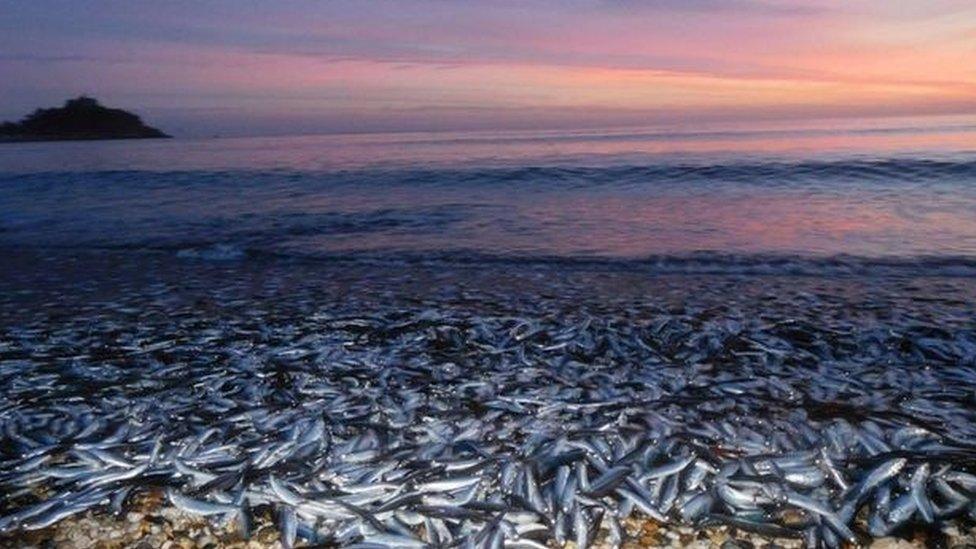Rare boar fish wash up on beaches in south-west England
- Published
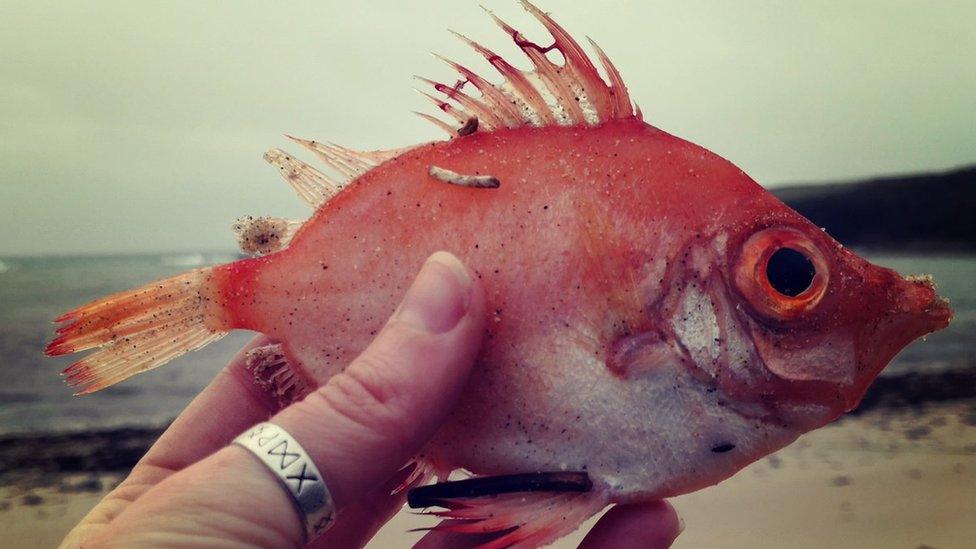
Boar fish, such as this one found on St Mary's, are "seldom seen"
Several rare boar fish have been found dead on beaches in south-west England in a series of "mystery" strandings.
The "bizarre, brightly coloured" fish, external usually live at depths of up to 2,300ft (700m) in the east Atlantic.
Three have been reported on the Isles of Scilly, one in Newquay and one in Kimmeridge, Dorset over a three-week period in March and April.
Marine biologists said the fish are a "curiosity" and "seldom seen", with an average of only two a year washing up.
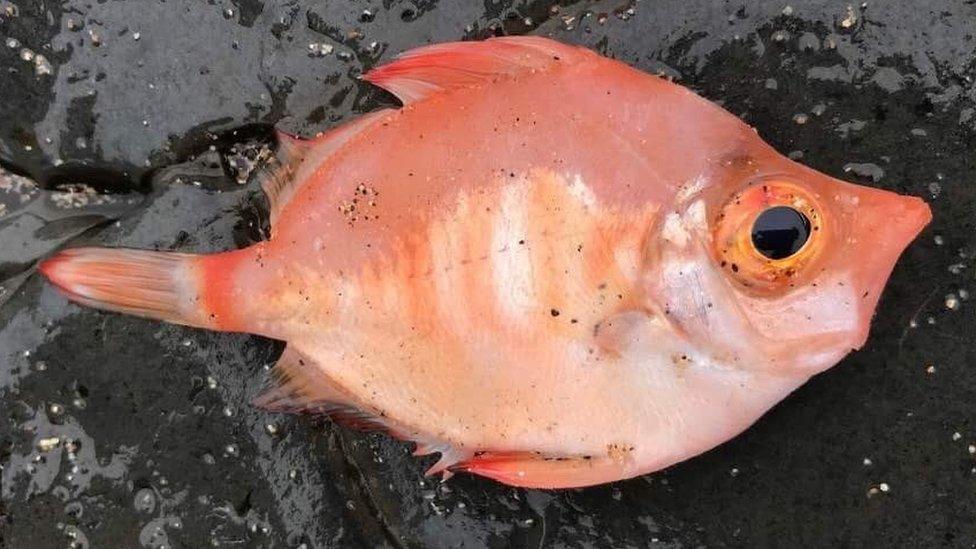
Experts said it was "very rare" to see boar fish as far east as Kimmeridge in Dorset
Julie Hatcher, beachcomber and Dorset Wildlife Trust Officer, found a fish in Kimmeridge, near Poole.
"It's such a distinctive attractive fish with a very unusual shape," she said.
"You know instinctively that it isn't common, it isn't normal."
Marine biologist Douglas Herdson, from Marine Fish Information Services, said an average of about two a year wash up across the whole South West.
He said the reason for several sightings in such a short time was a "mystery" and it was "very rare" to see them as far east as Dorset.
"The ones seen on our beaches may be discards from trawlers, though they have been found alive before in a rockpool in Wembury, Plymouth, and in a pool on Whitsand Bay, Cornwall," he added.
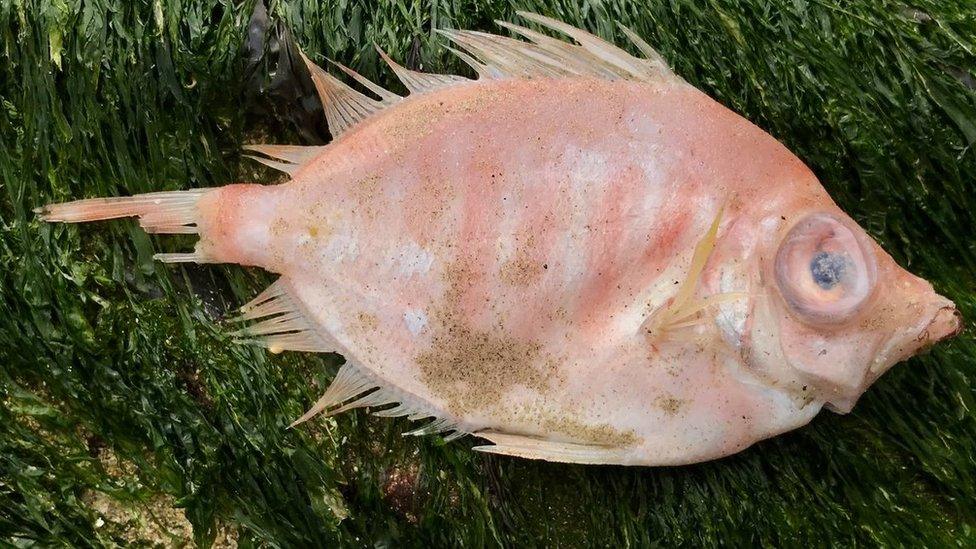
This boar fish was found dead at Porth, Newquay
Diver and scientist Dr Keith Hiscock, an associate fellow at Plymouth-based Marine Biological Association (MBA), said he had only seen the "very skittish" fish while diving once in 2010 off the Isles of Scilly.
"They look so bizarre and are a curiosity. Why do they come up? Who knows?," he said.
Cornwall Wildlife Trust confirmed they are only "occasionally" found in Cornwall with the last being almost two years ago.
- Published13 September 2017
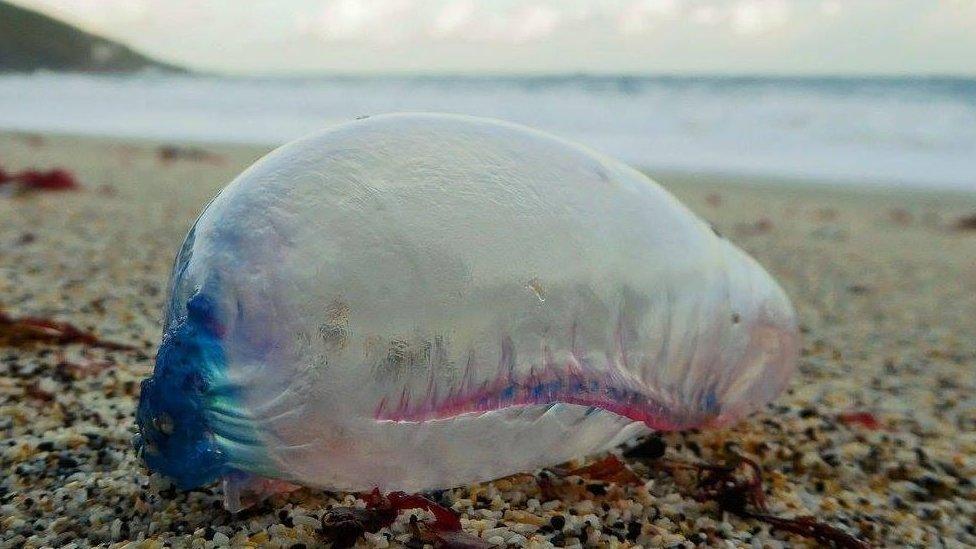
- Published21 June 2017
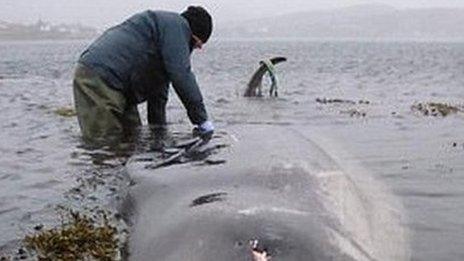
- Published20 December 2016
